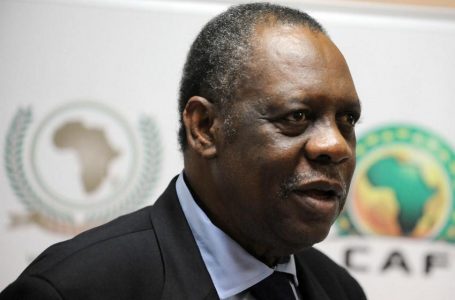
As I hear it, I join my hands and I applaud: Cheikh Hamidou Kane is in the spotlight on the African literary scene. Haloed by the Grand Prix des Mécènes. An African literary prize, awarded on the African motherland, by fellow Africans. – Who said that no one could be a prophet at home? … Great opportunity to revisit with pleasure, and fortunately more relaxation than formerly during essay exams, the modest but how remarkable contribution of Cheikh Hamidou Kane to African literature. The masterpiece, the classic, the Ambiguous Adventure.
The man and the work
A good author, it’s first and always (at least) a good work. At the mere mention of the creator, the creature immediately springs to mind, faithful to its master, like an “other I”. Hard to imagine one without the other. Little demonstration, let us pronounce together the words that spring from our imagination when reading the names Alex Haley: …; Chinua Achebe: …; Cheikh Hamidou Kane: Ambiguous Adventure. It’s automatic. No lever to activate, it comes all by itself. Man and work (oh! the beautiful formula), forever linked by a cord that looks like an umbilical. The name and the title, paired by a (reciprocal) paternity bond, forever and ever. The book owes the author its “coming into the world”, and the author owes the book his rebirth as a writer.
There may be exceptions, no doubt. There are those authors, perhaps more fortunate than gifted, who have managed to write two or three masterpieces in a single lifetime. Papa Kane for his part remains humble. He certainly does not pretend to be as austere and parsimonious as Thierno, the tutor of his hero Samba Diallo; he knows how to be satisfied, perhaps not with the bare minimum, but with the minimum absolutely necessary. He had a thought to express, better still, a great existential question to raise, at the time when all African students and intellectuals had or thought they had things to say. About colonization, independence, pan-Africanism, racism, apartheid … but also on the fact or pride of being Black: this movement that they have – Senghor and Césaire – called “Negritude”.
Cheikh Hamidou Kane took up his pen to express his thought, rather, Jacques Chevrier put it so aptly, his anguish at being Black, at being a man, in short. He did it within a single, small book. Period. A story, I would rather be able to call it a little philosophical tale of just over a hundred pages. Was he afraid to repeat himself, by writing more than a small volume on the multiple problems and questions of this era of Africa, his Africa? Some of his peers did, however, at the risk of serving a rehash to readers, and may be eventually boring them. Millions of pages had been written for centuries to flout the dignity of the black man, they
believed they should do the same to give a competition. Cheikh Hamidou Kane spoke like a chief. Once. Going deeper does not necessarily mean expanding.
So, for these young kids out there, who, after reading this simple article, will run the shelves in search of the books by Cheikh Hamidou Kane, it may be that the bookseller offers you only one title: Ambiguous Adventure. Published in 1961, when the author, a young intellectual fresh out of the white man’s schools, was brilliantly beginning his professional career with high offices in the administration of his Country, Senegal. He then held several ministerial posts, before serving as UNICEF representative in various African countries. Today, at more than ninety years old, at the time of writing one’s memoirs, Cheikh Hamidou Kane leaves us no hope of reading him again. He thinks he has everything recorded in his masterpiece. He has nothing more to write: go tell your mama!
While there, my assistant whispers to me that there is another book by Cheikh Hamidou Kane, published in 1995. “Ah! And what’s the title again, Margot? – Les Gardiens du temple”. The Guardians of the Temple: that one totally slipped my mind. Margot saves me… It’s Mahalia Jackson whispering to Martin Luther King: “Tell ‘em about the dream, Martin!” (Relatively speaking). Seriously, what would I have looked like! But at the same time, what would you expect? This is well characteristic of any self-respecting masterpiece: shade the other creations of its author.
Does Samba Diallo’s adventure still look ambiguous today?
Does the cliché of the African student, stuck in the anguish of the in-between-shores, still fascinate philosophers and writers? Not really. Today, the question no longer arises with the same acuity as it did half a century ago. We go to school and that’s it. Besides, the expression “White man’s school” is a bit old-fashioned nowadays; it is almost on the verge of obsolescence. Africans have assimilated it (the white man’s school), to the point of mastering it: “I teach French to little French people” (Senghor).
In the Ambiguous Adventure, the Diallobé were living with anxiety, wondering if by sending their children to school, what they were going to learn was worth what they were going to forget. For them, the choice was not easy. Perhaps there should have been some other way out: rather than dreading the unknown, step towards it, welcome it with open arms, receive it at the risk of melting into it. That is the rendez-vous of giving and receiving of which Léopold Sédar Senghor, another illustrious compatriot of Cheikh Hamidou Kane spoke. The result is that today, rightly or wrongly, we have a new breed of people who proudly claim to be “citizens of the world”.
To choose or not to choose, that is the question!
Shakespeare would have lived at a certain period in time that the famous Hamlet soliloquy would certainly have started with, in a strictly literal sense this time, an embarrassment of choice. Contemporary of Sartre, and therefore young Hamidou Kane, the king of the playwrights would have written for sure: “To choose, or not to choose, that is the question!”
In those years, for intellectuals and aspiring intellectuals, it was all a matter of choice and commitment. Forgotten, the mathematical logic which would have liked that 1 + 1 = 2; or yet: choose not to choose = not to choose to choose. Jean-Paul Sartre, an adulated philosopher in his time, up to hysteria, reasons differently. And his premise can be summed up in a question-and-answer that hits home: Isn’t choosing not to choose, choosing? … The music sounds good. The message gets across, appeals to the majority (not to say the masses), and does not leave much room for maneuver to the “non-aligned”; the very people who thought they could hide, tranquil in the comfort of innocence that neutrality confers, while in the course of the world the great brain groups collide and neutralize each other by interposed revolutions.
As an intellectual, or a student, an African moreover, one is almost under pressure; summoned by “the eyes of others” (inferno according to the same Sartre), to take sides, to defend one’s opinion, ideas, policies or aspirations. Hell bent. Dreaming novelists and purist poets of art for art’s sake are asked to climb down from their little clouds, whipped into shape, collared by the brigadiers of committed literature. For them, the pen is pistol, and words the bullets.
This is the context in which Cheikh Hamidou Kane began to write Ambiguous Adventure, in 1952. Not necessarily to get involved or take a stand, but more, in my opinion, to highlight the anxiety of being forced to make choices that involve, far more than the individual, his community. To go or not to go to the white man’s school? Could this question be reduced to this other: Forgetting or not forgetting your culture? …
Why are things so complicated? the reader seems to be wondering throughout the Ambiguous Adventure, if not the hero himself, Samba Diallo. Wouldn’t it be easier to try to reconcile the extremes, find somewhere in the middle the harmonious point of convergence, or at least the threshold of mutual tolerance that Gandhi was talking about? Yet it is possible. Cheikh Hamidou Kane himself is living proof of this. He went to the white man’s school, and he hasn’t forgotten his culture. For this, Africa is proud of you and honors you, papa Kane.
As I hear it, I join my hands and I applaud: Cheikh Hamidou Kane is the Winner of the Grand Prix des Mécènes 2019!
Translated from the original article by Eric Mendi: “Ce que la littérature africaine doit à Cheikh Hamidou Kane”, by Camer.be Group








